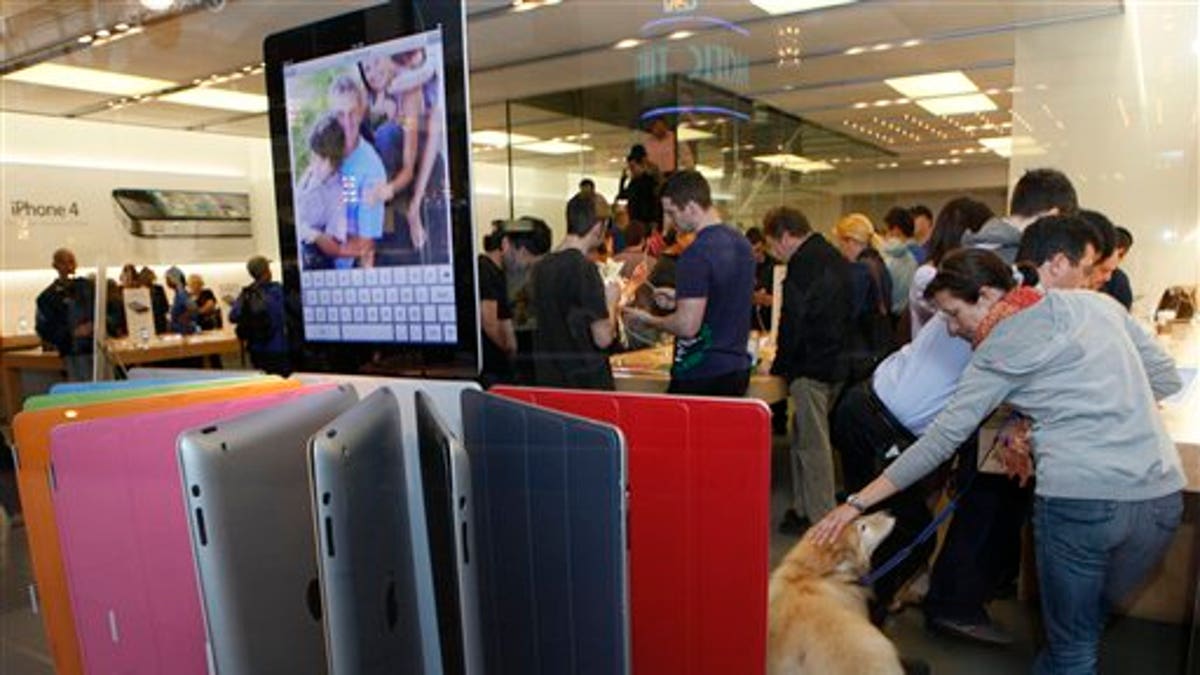
March 11: Shoppers buy the new iPad 2 at The Grove Apple store in Los Angeles. (AP) (AP2011)
The recent explosion of smart-phones and tablets has been a huge boom for electronics makers like Apple, but some technology experts say all that communicating on those devices is putting a big strain on the nation's Wi-Fi computer networks.
Consumers are expected to snatch up 24 million iPad 2's this year, leading the tablet-tech boom that's keeping Americans informed, entertained, and untethered.
"I think people are looking for all the right devices that's connected all the time, that has great battery life, that comes on immediately, it's always on line and can be communicating constantly," says CNET executive editor Molly Wood.
But experts say unlike modern cell phone networks, many Wi-Fi hot spots at locations such as coffee shops and airports can only handle a handful of users at a time. As more people go online, the result can be the wireless equivalent of a traffic jam: everyone trying to use the same road at once and are no one getting anywhere quickly.
It was a problem Steve Jobs himself encountered last year when so many Wi-Fi users at his keynote speech effectively blocked his ability to demonstrate the latest features of the iPhone 4.
"We have all these technology companies pushing wireless gadgets. We need to have an infrastructure to support the use of those gadgets otherwise they're expensive paperweights," said technology analyst Larry Magid.
Tablets made by Apple, Motorola, Samsung and others use a lot of bandwidth, which is limited, and rely on internet access from networks at home, hotels, restaurants, medical centers and schools. But most Wi-Fi networks were built for a relatively small number of laptops -- not for dozens of media-rich, portable devices with video conferencing capabilities that are in continuous use by people who take them everywhere.
Companies like Ruckus Wireless are responding with "smart antennas" designed to improve reliability, and help users maintain their connection when scores of other tablets are in use are in the same area.
Service providers like Comcast and AT&T are also charging users additional fees if they heavily exceed a monthly cap on data. Chip makers are also tackling this overload issue, which is a supply and demand problem that's only expected to grow alongside sales of today's must-have gadgets.








































